Article first published December 2017, updated June 2019
There’s a lot to learn when you’re entering the world of email marketing for the first time. Even though it’d be nice to know how to get a good ROI from email on the first go, it takes time and experience to learn best practices.
You’ll need to understand how to best leverage email automation, write the perfect subject line, and build a quality email list. You’ll gain some insights through reading the latest studies and research, and other insights through your own unique experiences.
There may not be shortcuts that always do the trick, but there are loads of seasoned email experts who can offer their best advice to those starting out.
Today, you’re in luck. We’ve reached out to some of the top email marketing experts to find out what they wish someone had told them when they were getting started. The email marketing lessons they’ve learned over the years will definitely help you avoid some hurdles.
What is the best way to do email marketing? Learn from the experts:
1. Henneke Duistermaat – Copywriting & Marketing Expert at Enchanting Marketing

Tweetable: Unsubscribes can be a good thing.
I wish I’d understood that unsubscribes are good. In the beginning, I was distraught when people unsubscribed. Did they hate my writing? Was I emailing too often? Was I too boring?
Over time, I’ve learned you can’t please everyone. The emails that bring you closer to your raving fans are often the emails that turn off subscribers in the periphery.
Now I prune my lists a few times a year. Removing people who aren’t that interested in hearing from me feels like a good cleaning job. Plus, I’ve learned to write for my core fans only. It’s more fun for me, and more valuable for my subscribers too.
2. Kevan Lee – Director of Marketing at Buffer

Tweetable: From name and subject line are extremely important.
When I started email marketing, I spent so much time on design and body copy that I completely neglected perhaps the two most important—definitely the most primary—aspects of a successful email: the subject line and “From” name.
Subject lines were the easier ones to correct. It felt a lot like brainstorming blog post titles. But testing the impact of the “From” name was something I never considered until much later on. If people trust you, they’ll more likely open your email… so it’s important to get people to recognize that the email is from you.
3. Joanna Wiebe, Founder of CopyHackers and AirStory

Tweetable: Send when you have something valuable to share.
When I was getting started, I wish I’d known not to worry about the frequency of sends. You hear not to email too much, and then you hear that you should email every day or once a week.
But what I’ve learned over the last 15 years of email marketing is the simpler, better lesson: Email when you’ve got something relevant to share. That could happen daily, or it could happen in fits.
Relevant content leads to better open and click-through rates. So, if you’re always adding value to your subscriber’s life—whether with a great new post or a must-have offer—send away. If you’re not adding value, don’t send the email.
4. Sujan Patel, Co-founder of WebProfits

Tweetable: Use email marketing in all customer acquisition channels.
I wish someone would have told me that I should be using email marketing in all my customer acquisition channels, not just in my marketing efforts.
For example, I’ve recently started pulling out email subscribers from my list that have a higher chance of converting to customers and creating separate, more personalized and more sales-focused sequences for them.
Breaking down the barriers between sales and marketing, in general, is something I wish I would’ve started a long time ago. Given how versatile of an acquisition tactic email marketing is, it’s a no-brainer to start that process with it.
5. Ali Rastiello, Sr. Manager of Marketing Automation at BigCommerce
Tweetable: Integrate your marketing messages across different platforms.
I wish I would’ve known to integrate my email marketing messages with different channels. This may seem obvious, but it’s the biggest mistake I made in my early days—and that I see marketers still making today.
The content you choose for email should be part of a holistic campaign. It’s not enough to hope that your email programs will drive all conversions. Your paid media, social media, and event strategy should all incorporate the same messaging points and align with the marketing funnel to achieve maximum impact.
Essentially, you have to market with purpose.
6. Kath Pay, Founder of Holistic Email Marketing

Tweetable: Think about your audience and be as relevant as possible for them.
I began in email marketing in 1998 and everything I now know wasn’t necessarily applicable back then, as the consumer’s expectations were completely different to nowadays. But I wish I’d known back then that email marketing is not about the channel, nor the sending technology; it’s about the individuals that are receiving the email. It’s about making the email/offer/content as relevant and valuable to them as possible. It’s about leading with marketing and letting technology bring it to life, not the other way around.
7. Jordie van Rijn, Email Marketing Consultant at eMailMonday

Tweetable: Optimize email efforts for subscriber lifetime value–not campaign activity.
When I started out, email reporting metrics led me and everyone to believe that success is top engagement (open rate, click rate) and revenue per email campaign. That is what you want, right? Wrong.
Campaign-based data will only take you so far because average email stats don’t tell the whole story of the underlying groups.
Each email to a person will influence the success of the next one to that person. If we want to get better results from your subscribers, we need to optimize on subscriber lifetime value—not on campaigns.
8. Val Geisler, B2C Email Expert

Tweetable: When it comes to email: Test, test, and test some more.
I wish I knew that testing is the name of the game. I honestly thought I’d set up my list, the template, the structure, etc. and just stick with one thing forever and ever.
That’s not the best approach though. Your audience evolves, you evolve, and your list of subscribers evolves. You have to constantly test and measure the results to find out what works best for your email marketing game plan.
9. Justin Khoo, Founder of FreshInbox

Tweetable: Use preheaders to double the length of your subject line.
I wish I’d known about the importance of preheaders. The fact that you can double the length of your visible subject line with some clever HTML techniques to place key text at the very top of your email is so valuable—and often overlooked.
Plus: This text can be hidden so that it doesn’t clutter the email when opened.
10. Kayli Barth, Director of Email Marketing at MTL NewTech

Tweetable: Leverage segmentation for more personalized experiences.
For me, I wish I’d known more about segmentation.
Now, when I’m planning a campaign, I always want to know more about who my audience is individually so I can create a more personalized, targeted experience that would a) add value to the right people and b) keep those unsubscribe numbers down.
But, when I started building my list, I didn’t think about how important this would be down the line. And, honestly, everything I read on the subject just kind of made my head spin…so I ignored it. That’s a lesson I’ve learned along the way.
11. Chad White, Research Director at Litmus

Tweetable: Understand the complexity of email rendering.
When I first started in email marketing in 2006, I was focused on email messaging and strategy. I wish I’d understood from the beginning how inconsistent email client support for coding is and therefore how complex email rendering is.
For marketers who now understand that the new challenge is to avoid creating consistency by playing down to the lowest common denominator. Instead of trying to create “pixel-perfect” emails, marketers need to use progressive enhancement thoughtfully to create “platform-perfect” emails that deliver the best experiences for users of key email clients.
Key takeaways: email marketing lessons to incorporate into your marketing strategy
Our experts shared a lot of important tips that, when put into practice, can help you create an even better email marketing campaign.
Let’s review some of their key email marketing lessons.
How do you create an effective email marketing campaign? Implement these tips.
1. Pay attention to your unsubscribe rate.
It’s a great feeling whenever someone subscribes to your email list, but it can feel downright discouraging when someone unsubscribes to your list.
Remember: you can’t please everyone—and you don’t want to. Your focus should be on your ideal customer and target audience. People who stick around are those who value what you have to offer, and you can be sure that your time and effort isn’t going to waste on them.
2. Email marketing 101: pay close attention to your subject line.
Of all the important email marketing lessons, this one is close to the top of every email marketer’s list—focus on your subject line.
The email subject line is basically your first impression. To ensure you make a good one, keep your subject lines short and sweet. Make sure they fit the content of your email, as well as the interests of your audience.
3. Email only when you have something relevant to say.
A lot of marketers get caught up in the idea that they need to email their subscriber list constantly. Some people are under the impression that there’s a magic formula when it comes to how often they send emails. Perhaps they’ve watched an email marketing tutorial with step-by-step guides that show you the ideal send frequency.
Here are two things to remember when it comes to how often to send emails:
∙ Send emails when you have something of value to share with your audience
∙ Your brand and audience will determine how often you need to send emails.
Some brands have audiences and products/services that require daily emails. That’s not for everyone, though. Figure out what your audience wants and send emails that are full of value. Remember, relevant content will result in better click-through and open rates.
4. Market with a purpose.
To achieve maximum impact, you need to make sure all of your marketing channels are in alignment. This includes:
∙ Email marketing
∙ Social media marketing
∙ Event strategy
∙ Paid media
All these channels should incorporate the same message to your audience. This ensures that, no matter what platform your ideal customer is on, they’ll recognize your message and brand.
5. Your emails should be about the recipient.
A lot of email marketing programs will teach you step-by-step strategies to increase your open and click-through rates. That’s great—unless they forget one of the most important email marketing lessons: that your emails are not all about you, your brand, the email design, or sending technology.
Your emails should be all about the person who receives them. Make sure the content fits the needs and desires of your audience, and you’ll quickly see an improvement in your open, click-through, and conversion rates.
Wrap up
Be sure to take notes on the tips these email marketing experts have shared to keep you and your team from repeating some of the hard-learned email marketing lessons they’ve experienced firsthand. From optimizing customer journeys to crafting the right copy within email and beyond, they’ve shed some light on ways to improve your email efforts.







